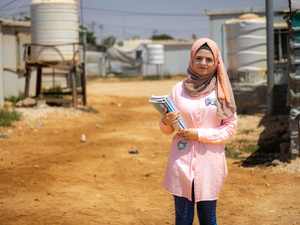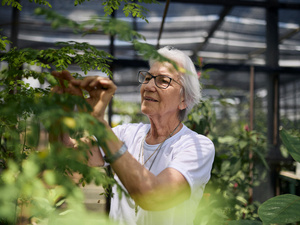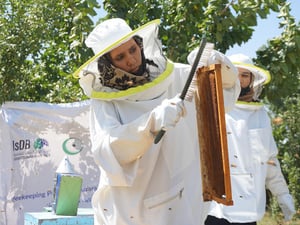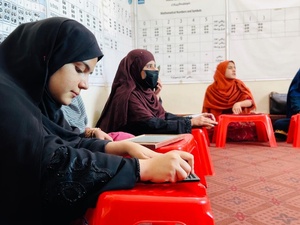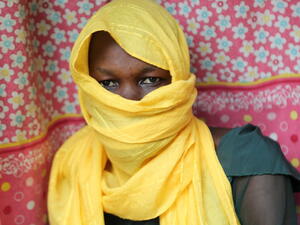Healing the wounds of sexual violence in the Congo
Healing the wounds of sexual violence in the Congo

Violence in eastern Congo has forced thousands to flee their homes and led to widespread sexual violence against women.
GOMA, DRC, August 10 (UNHCR) - Before the fighting started in eastern Democratic Republic of the Congo (DRC) Rose* and her family lived quiet, rural, lives. She and her husband had three children, a small piece of land on which to raise them and a stall on the main road from where they would sell fish.
With the outbreak of conflict 15 years ago, their lives began to unravel. Their house was robbed, their business struggled. The final collapse came when armed men entered Rose's home with the intention of raping her two daughters. She pleaded with them to kill her and spare her children.
"That's when one of them pulled out a knife and tore my clothes. He left me naked in front of my girls and they raped me in front of them," Rose recently recalled to a social worker at a UNHCR-run camp for internally displaced persons in North Kivu.
Like many victims of sexual violence here, Rose has become a regular visitor to the camp's women's center, which provides counselling, skills training and literacy courses. With funding from UNHCR, the center seeks to assist and empower women who are survivors of sexual violence, infected with HIV-AIDS, illiterate or otherwise socially excluded.
It is women like Rose that US Secretary of State Hillary Clinton is expected to meet Tuesday when she visits a camp for the displaced in North Kivu, a region where 400 cases of rape are currently being registered every month.
Reporting to the Security Council last month, UN Secretary General Ban Ki-moon, said that at least 200,000 cases of sexual violence had been recorded in eastern DRC since 1996.
The women's center in the Mugunga II camp, about 25km west of Goma, is run by the organization Women for Women International (WWI) which works to rebuild the lives of women affected by conflict.
For Rose and the other women who attend, the project is a second chance. During the months that she spent at the camp Rose received stress management training and took a keen interest in the sessions taught on women's rights. She said the center has allowed her to overcome the shame she felt when she was in public. She used her newly acquired legal knowledge to reclaim her property which had been occupied during her years of absence.
Breaking the silence is extremely difficult for rape victims in eastern DRC where the subject is taboo and victims ostracized. Many, like Rose, are abandoned by their husbands in the aftermath of the assault.
Aimee*, 36 and mother of five children from Goma, was also deserted by her husband who witnessed her rape by five armed men in their house four years ago. She was evicted from their property after her husband sold it without informing her.
"The new owners of the house threw her out like a dog and she was traumatized by what neighbors were saying about her," said Pelagie Nyakatoro Lukanga, the WWI social worker who received Aimee at the camp last year. "Her only option was to leave and find something to do to feed her children."
Since joining the UNHCR-funded project, Aimee has gained enough confidence to speak out in defense of sexually abused women like her, while selling soap to make ends meet.
"These stories mirror those of the countless rape victims," says Karl Steinacker, who coordinates the UN refugee agency's relief efforts in eastern Congo. "While it remains important to help rape victims, our primary responsibility should be to prevent sexual violence from happening at all. We need to keep raising awareness, sensitize communities and bring an end to impunity so that the girls and women of eastern Congo can feel safe again."
*names changed
by Fatoumata Lejeune-Kaba

